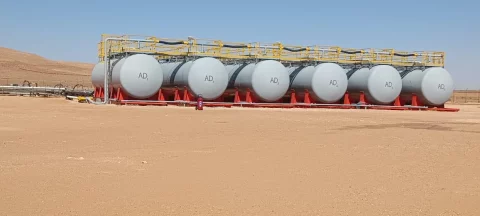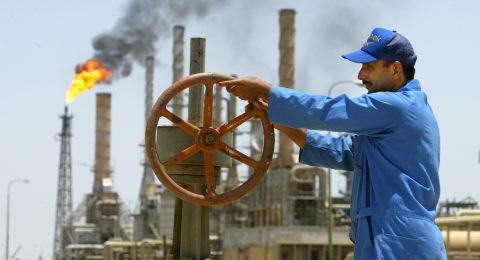Continuous learning and training for employees in any organization are crucial to encourage competitiveness. The importance of continuous learning has even increased recently, especially in light of the use of advanced technology and the huge amount of data. In the oil and gas, continuous learning is a key factor for boosting developments and raising efficiency.
Training in the oil and gas industry is essential for the workers’ safety and guarantees a safe working environment. Also, providing training and learning can nourish the employees’ loyalty feelings towards their organizations. Lately electronic learning (e-learning) emerged as one of the most effective tools for essential training, especially in the light of the technology available and the emergency circumstances imposed by the COVID pandemic.
Learning Becomes Easier
According to an article published by Market Business News, E-Learning refers to the delivery of any learning material through internet means using an electronic device. It identified e-learning as “a network that can provide knowledge and skills to one or more individuals.” E-learning can be provided through several methods for corporate training such as Web E-learning, which is based on website content in which the employees are able to access this website through personal devices or through the company’s internet, an article issued by VPlegacies stated.
Another method is the virtual classrooms in which instructors can be reached via video conference while the learners are physically present. Also, video modules are another method; this refers to educational videos that are made in advance for the employees and are accessible to them at any time. Specialized e-learning is also a method in which the organization can customize trainings for every employee or group of employees who have similar needs.
Moreover, while e-learning has been introduced through social media, microlearning refers to preparing short-focused modules. Mobile e-learning allows employees to access the needed information anywhere. To facilitate providing e-learning materials, several platforms were developed for various fields, principally the oil and gas industry. Such platforms for oil and gas sector include PetroEd, PetroKnowledge, and PetroSkills.
Why E-learning?
E-learning proved its efficiency to the oil and gas industry employees rather than traditional methods. Digital learning enables employees to schedule their courses at the time that suits them. It also allows the training to be delivered to any employees anywhere with the same content and standards so that employees can access to their courses easily at remote wells, oil rigs and gas lakes at any time.
Unlike traditional methods, e-learning is cost-efficient for both employees as well as the organization. For employees, e-learning saves on travel expenses and additional accommodation. While for employers, it enables them to offer trainings for an unlimited number of employees with higher quality and at a more affordable cost.
The most significant advantage of the e-learning is that it fills in the skills gap in the workforce. Immediate access to knowledge and information ensures that workers could be trained on how to deal with potential risky situations and environments. Meanwhile, it lets them cope with the advanced technologies, which makes exploration and production activities more efficient and improves the performance of employees as well as organization’s performance.
Case Study
Nowadays, oil and gas companies started to adopt the “Lifetime learning” concept to make their organization alive amid the sector’s volatility due to prices change or even unpredictable circumstances like the pandemic. So, the most suitable and affordable method is online training and e-learning.
This has been proved in a study conducted by Farha Mohd, Sheikh Annuar Sh A Rahim and Yu Hock Oo entitled “An Analysis of Oil and Gas E-Learning Culture Pre-Covid-19, During and Post- COVID Era”. The study showed that the oil firms should have a digital learning platform to be the heart of the organization as it facilitates the collaboration of knowledge management. It stated that digital learning platforms provide the basis of a robust resource management.








